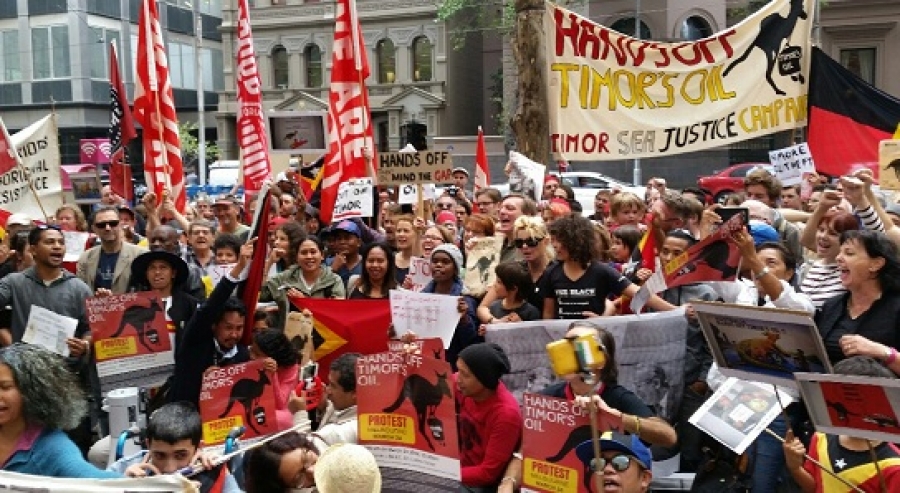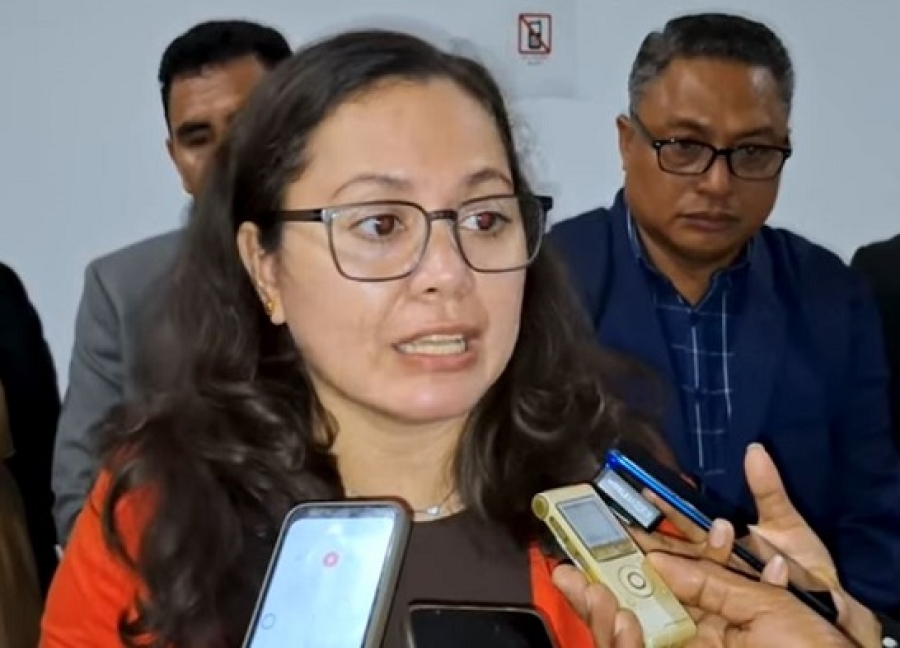In January, Timor-Leste announced it wished to terminate the treaty, which split future revenue 50-50 with Australia and put a 50-year moratorium on a permanent maritime boundary.
Greater Sunrise is estimated to hold nine trillion cubic feet of gas and 300 million barrels of condensate and liquefied petroleum gas worth about $53 billion.
Australian federal parliament's joint treaties committee is examining amendments to the Treaty on Certain Maritime Arrangements in the Timor Sea (CMATS) so that it can terminate on April 10.
The government of Timor-Leste has withdrawn its 2013 spying arbitration against Australia, which is the latest step towards resolving the long-standing sea dispute between the two nations.
A hearing in Canberra on Tuesday was told a major factor in the decision to walk away from the treaty was Timor-Leste's desire for a pipeline for processing resources on its shores, rather than a floating platform, as previously proposed by Woodside Petroleum, or a pipeline to Darwin.
La Trobe University lecturer Rebecca Strating said paradoxically Timor-Leste's ambitions to secure its sovereignty and economic development could undermine its capacity to develop.
She said there were some indications Timor-Leste was "resource cursed".
"To go back to the idea of the architect of its own demise, it's very possible that it could be," she told the hearing.
"This pursuit of independence may actually create a failed state in Timor Leste."
The hearing was told oil revenue made up 90 per cent of Timor-Leste's budget and roughly 80 per cent of the country's national income was derived from oil.
Oil from the Bayu-Undan field in the joint petroleum development area will be depleted by about 2022 and Timor-Leste's petroleum wealth fund could be dry by 2025-2028.
"If there is no agreement on Greater Sunrise it will create an aid-dependent state," DrStrating said.
University of Wollongong Professor Clive Schofield echoed that view.
"To achieve anything better than a 50-50 split, to put the whole of Greater Sunrise on the Timorese side of the line, that's drawing a long bow," Prof Schofield said.
Earlier, Department of Foreign Affairs and Trade officials told the hearing the treaty's demise would not impact on resource companies operating in the area.
Australia and Timor-Leste governments are taking part in conciliation in The Hague over the ongoing maritime boundary dispute.
Woodside has put on hold plans to develop Greater Sunrise until there is certainty over revenue sharing between the two countries.
The comments come as 21 written submissions were presented to the Australian Parliamentary inquiry on terminating the CMATS Treaty, 20 of them supporting Timor-Leste's legal rights.
La’oHamutuk, a Timor-Leste non-governmental organization working to monitor and analyse local development process, encouraged Australia to see Timor-Leste as a strategic partner.
“Timor-Leste can be an economic and political doorway for Australia into Southeast Asia, as we border Indonesia and will soon join ASEAN. We encourage Australia to see Timor-Leste as a strategic partner, and to consider our proximity as an opportunity rather than a security risk,” La’oHamutuk wrote to the Parliamentary Inquiry on Australia’s relationship with Timor-Leste in 2013.







